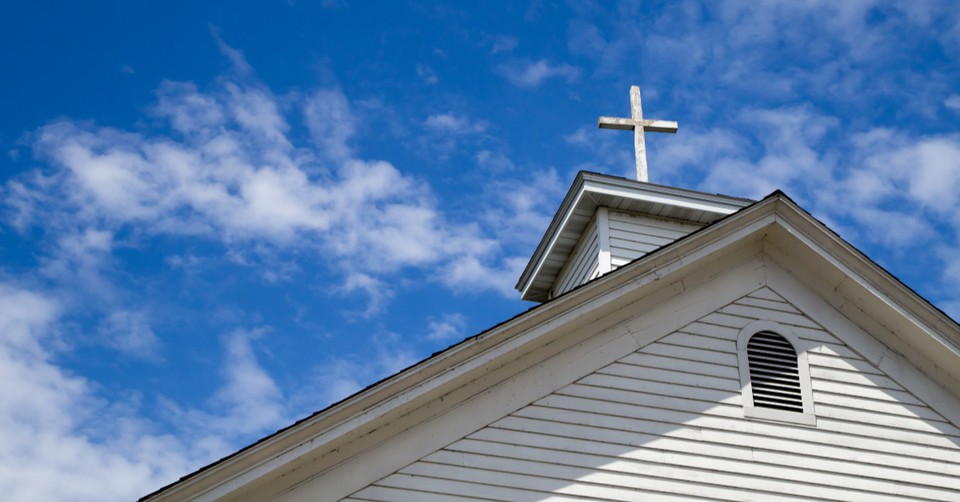5 Times When a Declining Church is Actually Healthier

I am amazed at how much material has been released recently about church revitalization. I just heard a statistic that 80% of churches in America have either plateaued or are in decline. I am grateful for the efforts of those who seek to bring life to these struggling churches. I am one of them. Yet I have a growing concern the more I learn about many of the materials out there addressing this problem. If we are going to characterize local churches as “declining,” then we are basing a church’s health on how many people attend.
How many people now attend a church versus ten years ago and why does give us some helpful insight into why a church is struggling, but that does not always tell the full story. This way of evaluation can also be an unnecessary source of discouragement to a pastor. The more I hear the push to overcome the “plateau or decline,” the more I begin to think of scenarios where a church’s decline in numbers is not necessarily a sign of trouble, but may be even a sign of health. There are many, but here are 5 reasons that came to my mind, several of which I even experienced in my own church:
1) Unconverted people leave because the gospel is being preached
If there are many unconverted members in local churches (I believe there are), they will not want to hear a new pastor come in and replace the typical feel good, better yourself message from the pulpit with the true gospel of Jesus Christ that is the only source to bring true spiritual life to a dying church. Unconverted church members will either leave or stay and cause problems, especially if they are in leadership. Preaching the gospel is the right thing to do and is the only thing that can give life to a church. No pastor should ever be discouraged if he loses people over declaring the gospel.
2) Church members pass away and go to be with Christ
We had a year where we lost several dear elderly saints, and the amount of those who died was more than the new members we brought in that year. A pastor should celebrate faithfully taking sweet saints of Christ to their eternal home and not fret about “replacing them” all at the same time.
3) Pastors and missionaries are tested, trained, affirmed, and sent out into the ministry
That same year we experienced a decline in numbers not only because of the amount of deaths, but because we sent two families out into the ministry that we had invested in and trained to do so. I can remember someone coming to me concerned about the sliding numbers, and I replied, “Really, in God’s eyes this may have been our most fruitful year.” That was received well, and we were both encouraged in the reason for our declining numbers and struggling finances that year, both of which were recovered the following year.
4) An intentional process to take in new members is established
Raising the standard for membership and protecting the front door a bit might cause you to have fewer members join the church in the beginning, but God is honored in pastors making sure believers in Jesus Christ are the only ones that become members of the church, even if the church numbers do not boom like you hoped. Membership meaning something has actually been the eventual cause of numeric growth for us, not the other way around.
5) A new pastor takes a long-time declining church
If you take a church as I did with decades of decline, it is a challenge to change that pattern. It takes time, even years. I talk to so many young pastors who, inside of two years, are discouraged because they have not be able to change the patterns that brought much of the decline. Remember what you have inherited, and if it took 30 years of decline to get your church where you find it today, it might take 30 years to change the pattern. But God’s gospel and word are powerful enough to do just that over time.
Therefore, dear brothers and fellow pastors, press on. You may be the cause of the decline, and if that is the case, you need to take a good hard look at yourself before God and ask for those blind spots to be revealed. However, in many cases, imperfect pastors, especially those new to their congregations, are still bearing too much of the responsibility of the decline. Sometimes God takes us through ups and downs, and there is so much more to evaluate on a church’s health than whether your numbers are “higher” this year than last. Decline can reveal many problems, but it can also be a source of encouragement to a pastor.
Pastors, preach the word, love those people, stay a while, and may God give you grace to determine what your “decline” should say.
Photo credit: ©Getty Images/Ehrlif
Brian Croft is Senior Pastor of Auburndale Baptist Church. To find out more, please visit Practical Shepherding.
Originally published August 20, 2015.







